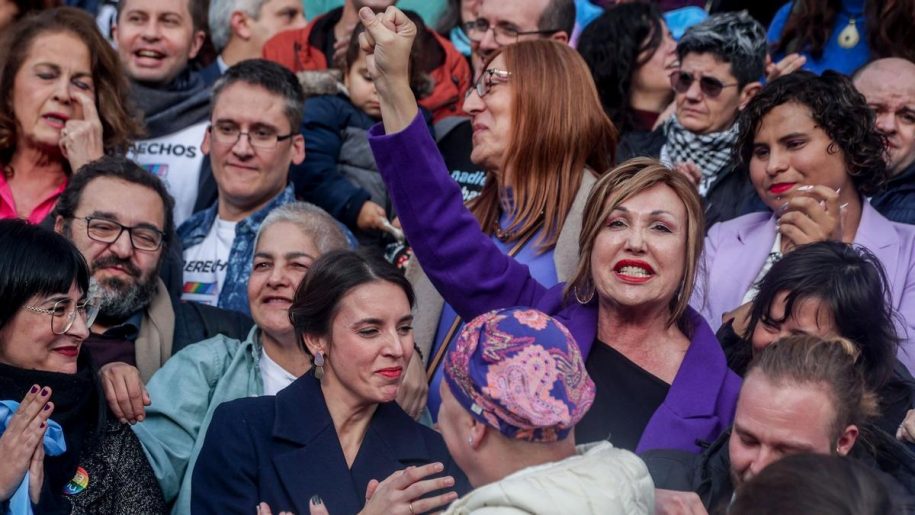After months and months of arduous debates, the Law for the Real and Effective Equality of Trans Persons and for the Guarantee of the Rights of LGTBI Persons has been approved in Congress. With 188 votes in favor of the government partners, 150 against PP and Vox, and seven abstentions, the bill should now be submitted to the Senate.
Carmen Calvo, a socialist figure who has openly expressed her opposition to this rule, is president of the Equality Commission where the text has now been processed. “I agree that there is a law, but not this law. That is why I cannot agree with the ‘no’ of the rights, which are never there to protect these groups. I voted on a difficult day the most complex option and I assume the consequences of my actions, always“declared to Cadena SER.
Irene Montero, Minister of Equality and fervent defender of trans rights, has defined the adoption of this law as “the most forceful way to confront the reactionaries and continue advancing in democracy“.
What does the “trans law” propose?
In 2005, Spain was at the forefront of the recognition of LGBTI rights with the amendment of the Civil Code that today allows equal marriage.
The Bill for Real and Effective Equality of Trans Persons and for the Guarantee of the Rights of LGTBI Persons may be modified until its arrival in the Senate. However, the current text aims at “specific measures aimed at preventing, correcting and eliminating all forms of discrimination in the public and private spheres; as well as encouraging the participation of LGBTI persons in all areas of social life and overcoming stereotypes that negatively affect their social perception”.
To this end, the letter proposes:
-
- The registration of name and sex in the DNI with judicial guarantee between 12 and 14, with the consent of parents or legal representatives between 14 and 16, and free from 16.
-
- Elimination of the medical requirements that until now were necessary to change gender in the DNI: take at least two years with hormonal and a medical or psychological report that supports the existence of gender dysphoria. In this way, the law would add its grain of sand to the depathologization of transsexuality.
-
- In order to restore the sex prior to self-determination, the current text establishes that the first and the next changes require nothing more than the will, but that, if there is already a third, it is through the procedure of voluntary jurisdiction.
-
- Criminalization of any practice, consented or not, that aims to modify the sexual orientation, sexual identity, or gender expression of people.
-
- Filiation of babies of unmarried lesbian couples.
-
- Prohibition of practices that seek genital modification in people under 12 years, except in cases where medical indications require otherwise. This is the first grant of rights for intersex people, which will extend the time frame for their families to register their sex.
-
- Effective equality in access to resources and services for LGBTI people in rural areas, on the same terms as people living in urban settings.
-
- Exile study That is: abandonment of LGBTI people from their place of residence for suffering rejection, discrimination or violence. Within one year of the adoption of this law, through the Council for the Participation of LGTBI Persons, the appropriate mechanisms to collect data on the migration of LGTBI persons within Spain should be established.
The Upper House may approve the text as it is to come, amend it through amendments or adopt a veto. If any of the latter two cases were to occur, the initiative would have to return to the Congress of Deputies for a final debate before its final approval.
Source: El País
Picture: Ricardo Rubio / Europa Press





